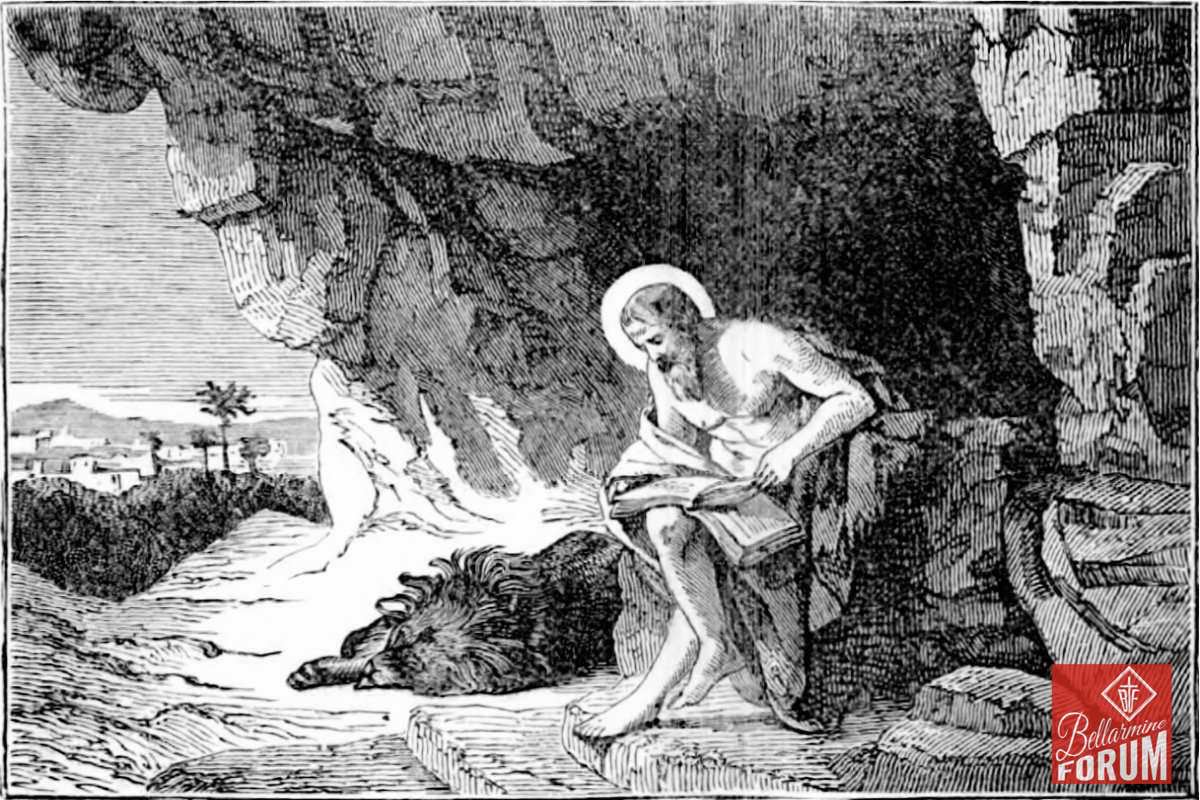SEPTEMBER 30 – ST. JEROME, DOCTOR.
ST. JEROME, born in Dalmatia, A.D. 329, was sent to school at Rome. His boyhood was not free from fault. His thirst for knowledge was excessive, and his love of books a passion. He had studied under the best masters, visited foreign cities, and devoted himself to the pursuit of science. But Christ had need of his strong will and active intellect for the service of His Church. St. Jerome felt and obeyed the call, made a vow of celibacy, fled from Rome to the wild Syrian desert, and there for four years learnt in solitude, penance, and prayer a new lesson of divine wisdom. This was his novitiate. The Pope soon summoned him to Rome, and there put upon the now famous Hebrew scholar the task of revising the Latin Bible, which was to be his noblest work. Retiring thence to his beloved Bethlehem, the eloquent hermit poured forth from his solitary cell for thirty years a stream of luminous writings upon the Christian world.

REFLECTION: “To know,” says St. Basil, “how to submit thyself with thy whole soul, is to know how to imitate Christ.”
WORD OF THE DAY
CIVIL LAW. Legislation promulgated by the government in a political society. In general, it is morally binding in conscience, as the Church’s tradition since biblical times testifies. “For the sake of the Lord,” Peter told the first-century Christians, “accept the authority of every social institution: the emperor as the supreme authority, and the governors as commissioned by him to punish criminals and praise good citizenship” (I Peter 2:13).
What is less certain is the precise nature of the moral obligation of civil laws and under what conditions they are binding in conscience. They are certainly obligatory insofar as they sanction or determine a higher law, whether natural or revealed, as when they forbid murder and stealing or specify the rights of ownership. They are certainly not obligatory when the laws are unjust, notably when they are contrary to the laws of God and of the Church, when they do not proceed from legitimate authority, when they are not directed to the common welfare, and when they violate distributive justice.
Thus a person is not permitted to obey a law that commands acts against the moral law. Yet if an unjust law does not lead one to commit illicit actions, one may in practice obey it or even be obliged to do so for reasons of general welfare beyond the immediate scope of the law. Moreover, once a law has been passed by the civil government, it should be considered just unless the contrary is clear from the nature of the law or from the declaration of ecclesiastical authority.
Modern Catholic Dictionary, Fr. John Hardon SJ (Get the real one at Eternal Life — don’t accept an abridged or edited version of this masterpiece!)
This article, SEPTEMBER 30 – ST. JEROME, DOCTOR. is a post from The Bellarmine Forum.
https://bellarmineforum.org/september-30-st-jerome-doctor/
Do not repost the entire article without written permission. Reasonable excerpts may be reposted so long as it is linked to this page.

